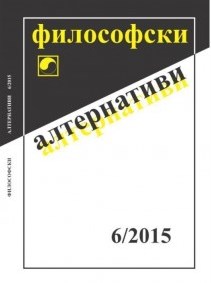Възприятие и крайност: феноменологически измерения на доказателството на Декарт за съществуването на „материални неща“
Perception and Finitude: Phenomenological Dimensions of Descartes’s Proof of the Existence of the „Material Things“
Author(s): Stefan PopovSubject(s): Philosophy, History of Philosophy, Philosophical Traditions, Logic, Special Branches of Philosophy, Philosophy of Mind, Phenomenology
Published by: Институт по философия и социология при БАН
Keywords: Descartes; existence; phenomenology; external world; material things; perception
Summary/Abstract: The critical appraisals of Descartes’s proof of the existence of „material things“ commenced with the first readings of the Meditations and have continued ever since. From Hobbes to the contemporary Anglo-American realists, the proof has provoked confusion and numerous reconstructions, which look into its essential logical moves. A number of critiques have declared it unsuccessful and even somehow preposterous. Descartes’s interest, however, is not in „material things“ per se or in the fact that they exist. Nor is it in the idea that something like a proof of their existence would guarantee both their own being and the being of what is called the external world. The focus of the proof is not on material things in the sense of an external world. Instead, it has a functional significance in a broader context, where Descartes is interested in the possibility of knowledge under the condition of finitude. Understanding the internal meaning of the proof of the existence of material things requires a phenomenological reading of the Cartesian meditation as a whole. From a phenomenological perspective, it is essential to account for and preserve the condition of perception as finite. In its relation to objects and object schemes, thinking discovers concepts in its own realm, within itself. Both thought and its objects thus carry the features of purity and infinity. Perception, on the other hand, is directly connected to finitude, which in turn is articulated in receptivity. Receptivity needs to have what is perceived as given. Descartes proof provides a procedural and schematic expression of this condition of perception, which requires that something be given outside of it and independently of it.
Journal: Философски алтернативи
- Issue Year: XXIV/2015
- Issue No: 6
- Page Range: 75-83
- Page Count: 9
- Language: Bulgarian
- Content File-PDF

